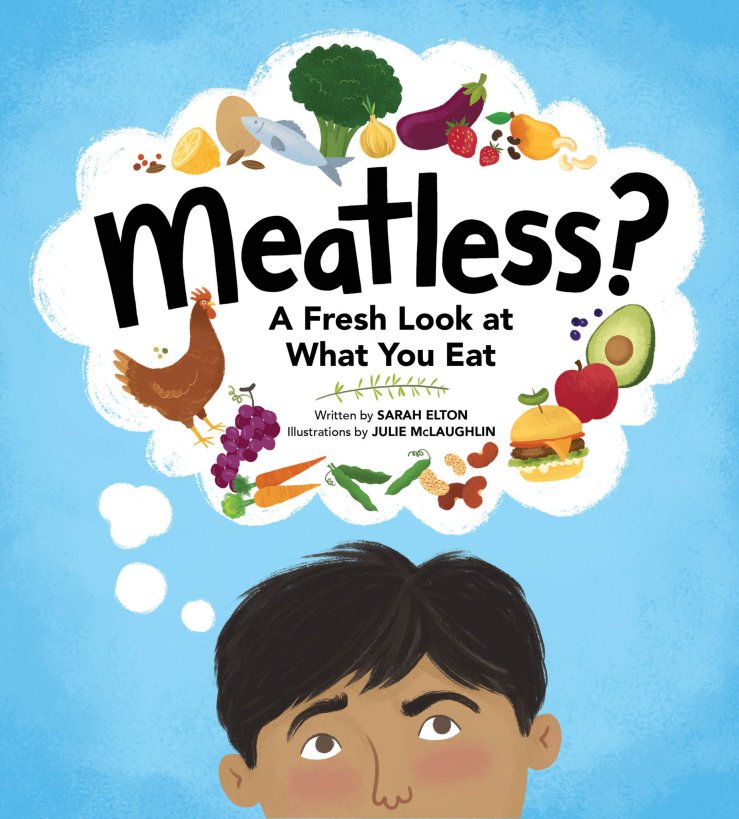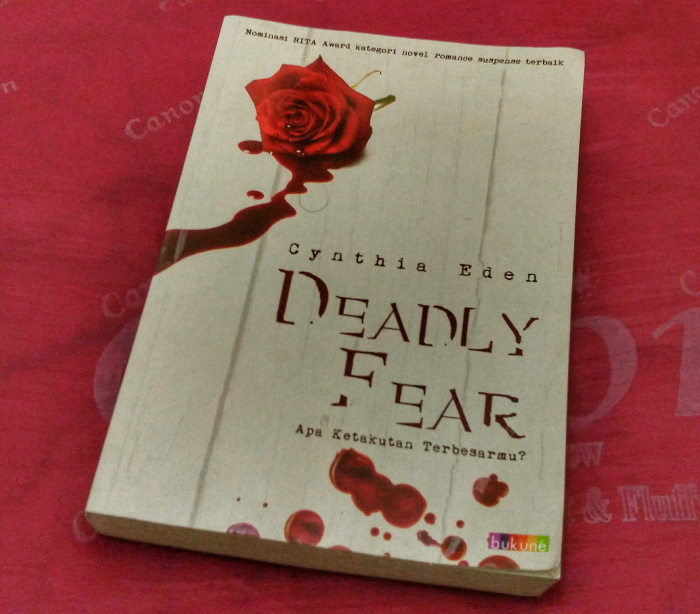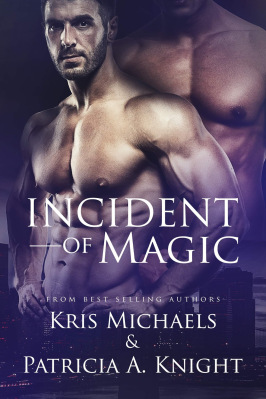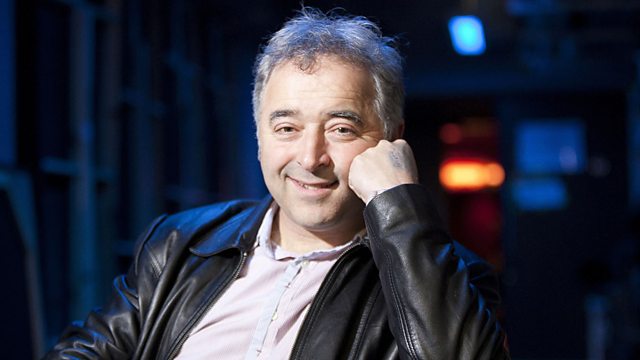
Frank Cottrell-Boyce (Source: BBC)
There is very little television to bring the nation together anymore. We access the news whenever we want, and even the water-cooler culture of reality TV has its separate tribes.
But if there is anything to galvanise the nation’s front rooms into simultaneous viewing over the next year – short of a highly unlikely World Cup final in Russia – one likely programme is halfway through being aired.
Sir David Attenborough, a man so treasured that he even gave his name to a polar research vessel ahead of the public’s choice of Boaty McBoatface, has been fronting another flagship BBC production: Blue Planet 2.
Soundtrack maestro Hans Zimmer, experienced at enhancing ocean scenes from Pirates of the Caribbean, brings out the emotion in this underwater series – such as fear of the terrifying Bobbit worm. But more often he is putting sound to images that are awe-inspiring, featuring an astonishing array of strange and beautiful creatures.
The enchanting multicoloured sea dragon that glides through an undersea world could so easily have come straight out of an animated fairytale, while one Beaker-like fish that pops its head into view could have been based on The Muppets. A bizarre sea slug, not unlike a submarine, with odd protuberances and bobbly bits that resemble stuck-on clumps of marshmallow, looks like a prize-winning entry in a children’s colouring competition.
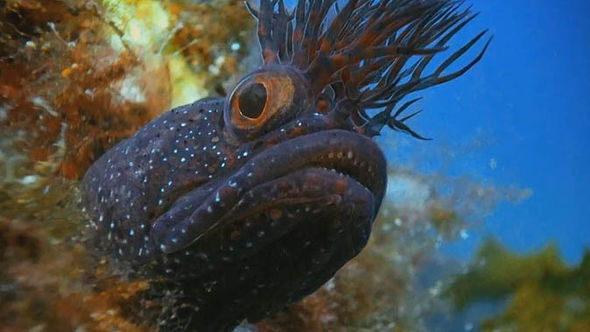
Credit: BBC
Then there is the fish that goes into a hole female, hangs around for some while, and comes out male – with an attitude to match.
It is as if the oceans are as wonderful as space.
Doing things with the script that Zimmer does with the soundtrack is the series’ screenwriter, Frank Cottrell-Boyce. He gets the wonder, and loves G. K. Chesterton’s line, “The world is not perishing for lack of wonders; the world is perishing for lack of wonder.”
Referring to his part in the 2012 London Olympics opening, on which he worked with Danny Boyle, he told me, “We had that on the wall when we were working on the Olympics, and Danny chose ‘Wonder’ as his word when he did the Christmas lights at Media City.
“It’s obviously even more true of this project, which is completely about reminding ourselves how astonishing life is, how diverse it is, and how at the same time it is all derived from a single source – the Sun.
“I treated the whole thing as a kind of thought experiment,” he continues. “I was born in the space age. Growing up, my imagination has filled space with Klingons and Martians, Vulcans and Wookies, Federations and Empires. Space is actually overcrowded in my imagination.
“For this I thought … ‘What if that’s not true?’ Life is so fragile, so recent, so dependent on so many factors, what if this planet is the only living one in the whole universe? What would that do to your appreciation of life? What if the most alien thing was an octopus? It makes you see just how alien a thing an octopus really is.”
Cottrell-Boyce has worked on many projects, but is most recognised as a children’s author – which makes Blue Planet 2 a bit like his day job: creating emotional stories from zany and sketchy characters. The difference here is that he could watch the characters move and act before he started.
He appreciates the thought, explaining, “I found the whole process really rejuvenating. In a movie, yes, you use words, but most of the words are simply a blue-print for something that will be built from light, from costumes, from gestures, from music.
“But here, everything else was already in place, everything but the words. So it was a chance to go back and rediscover just how important words can be and what a difference the right word can make. Sometimes, changing an indefinite article to a definite article completely transformed the way you saw a sequence.
“The big challenge was directing the viewer’s attention to a particular creature – that zebra foal, the baby turtle – without anthropomorphising them; to make the viewer identify with some of the challenges the animals were facing – defending children, looking for food, things all species have in common – without giving the impression that these were just humans in fancy dress.”
One of the key ways he did this, something that he found was “a delight… was to find one absolutely mind-blowing piece of information about each creature. The sequence that still gives me goose pimples is the sleeping whales. I think I’m right in saying this had never been filmed and was hardly recorded at all. It’s extraordinary!”
Cottrell-Boyce says that he was “utterly thrilled” to be asked to write the series. By the time he got the call, much of it was already assembled, with an overall shape and a guide narration.
“It came at a perfect time for me. My father – who has dementia – was very ill and needed a lot of attention. This is a job that I could do while sitting with him. So I just watched various edits at home and tried to think how it could have more narrative drive, tighter definition.
“It took me back to watching early Attenboroughs with him when I was a kid. It really made me appreciate the achievement of the BBC – which has been producing such amazing work for such a long time. It made me feel like a child while I was writing it.”
As a children’s author, that must have been helpful, a way to let his imagination run free and unfettered.
 But Cottrell-Boyce is well able to make very political and nuanced points, too. Goodbye Christopher Robin, the current film he co-wrote, might sound like a mild biopic just for Winnie the Pooh fans, but he has brought out so many adult nuances.
But Cottrell-Boyce is well able to make very political and nuanced points, too. Goodbye Christopher Robin, the current film he co-wrote, might sound like a mild biopic just for Winnie the Pooh fans, but he has brought out so many adult nuances.
Reviewing it for the BFI’s Sight&Sound magazine, Matthew Taylor observed that the screenplay doesn’t skimp on A.A. Milnes’s post-war shell-shock and largely keeps sentimentality at arm’s reach, ending, “unlike the famous bear, the film doesn’t overindulge in the honey.”
So did Cottrell-Boyce find the commission a chance to remove the assumption that Attenborough’s series have regularly made, that creation is an accident that happened by itself and write from his own faith perspective?
The man whose Desert Island Discs book was The Voyage of the Beagle replies, “As a Catholic I have no problem with evolution,” adding, “I’m sort of besotted with Darwin. We’ve a tendency to think that, because we can explain the process by which we were created, we – as a culture – have arrived at a point where we think it’s no big deal.
“What I wanted to suggest here is … it’s a very big deal indeed! Yes there’s a process, but it’s a bloody amazing one, and it’s worth considering the possibility that it takes an entire universe to create a single living planet. I think that thought is essentially Christian, but I also think it has scientific and moral validity.”
It’s refreshing to find a public figure with such an engaged religious literacy. The Church would do well to get that bigger picture more often and join the biblical dots to the scientific ones to see the lengths to which a God, who is love, will go to express his nature in terms of physical matter.
And when I ask if he feels like he is following in the footsteps of his heavenly father in creating for a living, he laughs.
“But I do think that all real creativity participates in the original act of creation, you know. Those moments – and they are very, very few and usually not that visible to other people – when you are carried beyond yourself … I think that is where you are carried TO – to the beginning, to the spirit moving over the water.”
Advertisements Share this:
